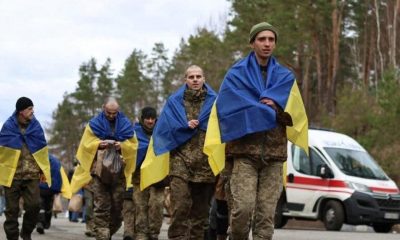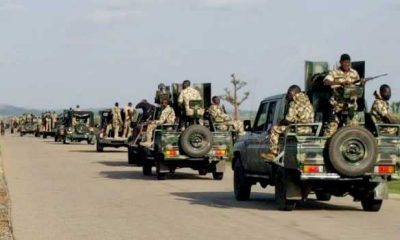News
Ukrainian commander resigns after Russian attack on training site
Ukrainian Ground Forces Commander Mykhailo Drapaty tendered his resignation on Sunday, June 1, citing a personal sense of responsibility for the deaths of at least 12 soldiers in a Russian missile strike on a training ground. In his resignation letter, Drapaty described the decision as “a deliberate step dictated by my personal sense of responsibility for the tragedy,” which occurred earlier in the day and follows a series of similar deadly strikes in recent months.
The attack came amid escalating military operations between Ukraine and Russia, as both countries intensify their aerial and ground assaults. Ukrainian authorities said the strike targeted a military training facility, killing 12 soldiers, most of whom were reportedly in shelters at the time, and injuring more than 60 others.
Concurrently, Ukraine claimed it had launched a “large-scale” drone offensive targeting Russian bombers stationed deep within Russian territory. According to a source from Ukraine’s SBU security service, the campaign aimed to damage enemy aircraft far from the frontlines. Targets reportedly included airbases in Belaya in eastern Siberia, Olenya in the Arctic, and Ivanovo and Dyagilevo, both located east of Moscow.
The source claimed that over 40 aircraft were damaged at Belaya, accompanied by fires visible in a video that showed several planes engulfed in flames and smoke. AFP has not independently verified the footage or the extent of the reported damage. Russia’s defence ministry confirmed that some military aircraft caught fire, adding that no casualties were reported and that several individuals connected to the incident had been detained.
Igor Kobzev, the governor of Russia’s Irkutsk region where the Belaya base is located, confirmed the drone strike, calling it the first such incident in Siberia. He urged residents not to panic and shared a video appearing to show a drone overhead followed by a large smoke cloud. Similarly, Murmansk regional governor Andrey Chibis reported drone activity and anti-aircraft response over the Olenya base.
Ukrainian President Volodymyr Zelensky announced that a delegation led by Defence Minister Rustem Umerov would travel to Istanbul for talks with Russian officials on Monday. Zelensky identified Ukraine’s priorities for the meeting as a “complete and unconditional ceasefire” and the repatriation of prisoners and abducted children. Russia confirmed it would send a delegation but did not disclose its peace terms, and President Vladimir Putin dismissed the suggestion of a leader-level summit.
The diplomatic developments unfolded against the backdrop of continued hostilities. Ukraine’s air force reported that 472 Russian drones and seven missiles were launched overnight—a record volume since the start of the invasion. Meanwhile, Russia claimed to have taken control of another village in Ukraine’s northern Sumy region, amid concerns in Kyiv that Moscow may be preparing for a broader ground offensive. Ukrainian officials say Russia has massed over 50,000 troops near the border and that over 200 villages have been evacuated due to heavy shelling.
Inside Russia, two bridge collapses near the Ukrainian border added to the day’s turmoil. Authorities said a Saturday explosion brought down a bridge in the Bryansk region, derailing a passenger train bound for Moscow and killing seven people. Hours later, another blast hit a railway bridge in the Kursk region, derailing a freight train and injuring the driver. Russian officials have launched a criminal investigation into what they described as acts of terrorism but have not formally accused Ukraine of responsibility.
The confluence of military escalation, high-level resignations, and emerging ceasefire negotiations highlights the deepening complexity of the conflict as it enters its third year.























